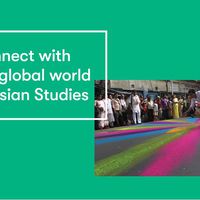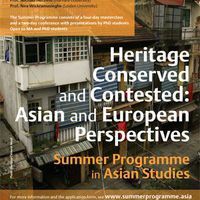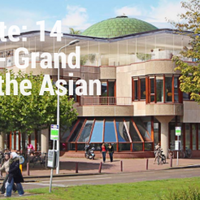Humanities across Borders | international collaboration platform of universities launched

The International Institute for Asian Studies (IIAS), at Leiden University, has recently been awarded a four-year grant by The Andrew W. Mellon Foundation, New York, to facilitate Humanities across Borders: Asia and Africa in the World, a collaborative platform of over twenty Asian, African, European and North American universities and their local social and cultural partners, for the co-creation of a new humanistic pedagogical model.
This follows the successful completion in 2016 of a three-year pilot-programme (titled Rethinking Asian Studies in a Global Context), also supported by the Mellon Foundation, to rethink the scholarly practice of area (Asia) studies in today’s global postcolonial context.
IIAS is grateful to The Andrew W. Mellon Foundation and Leiden University for their continuing support.
About the programme
The new programme, titled Humanities across Borders: Asia and Africa in the World (2016-2020), calls for expanding the scope of the humanities by mobilising knowledge-practices that have largely remained unrepresented in contemporary academia. It will connect a global network of individuals and institutions capable of garnering such knowledge in Asia and Africa in order to develop alternative pedagogies for teaching, research, and dissemination across disciplinary, national, and institutional borders.
The aim is to contribute to the realignment of the social role and mission of institutions of higher learning with regard to the humanistic principles and values that inspired their establishment in the first place.
The objectives of this four-year initiative are:
- The establishment of a trans-regional consortium of scholars, educators, and institutions committed to innovations in research and education;
- Methodological interventions through a focus on key sites of knowledge-practices in four regions – Southeast Asia, South Asia, East Asia, and West Africa – to benefit from their comparative potential;
- The encouragement of university-society linkages and, when possible, their institutionalisation in the form of trans-disciplinary centres for testing curricula and pedagogies in partner institutions;
- The development of a curricular matrix responsive to forms of humanistic knowledge-practices across borders.
Similar content
posted on
10 Jul 2018
deadline
01 Apr 2012
from - to
19 Jun 2011 - 26 Jun 2011
posted on
08 Sep 2017
deadline
01 Feb 2016
deadline
01 Dec 2011






